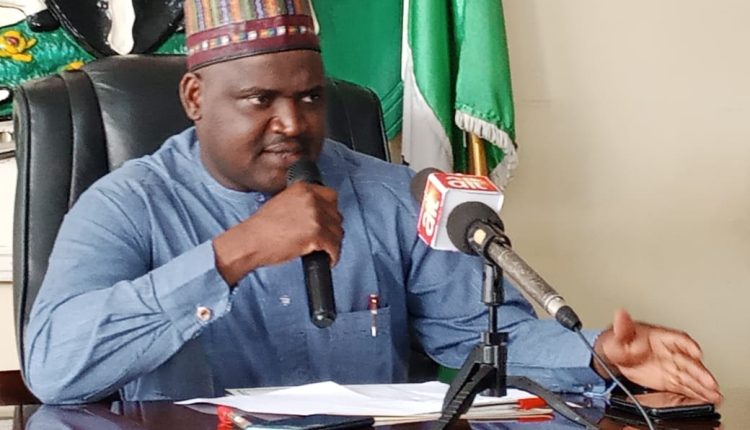Motorists accuse AMAC task force of harassment, multiple levies
Some motorists in the Federal Capital Territory (FCT) have accused a task force said to have been set up by the Abuja Municipal Area Council (AMAC) of harassment while demanding receipts for their multiple vehicle documents. City & Crime learnt that AMAC road officials are only responsible for issuing local government vehicle documents, but some […]

AMAC Hon. Christopher Maikalangu
Some motorists in the Federal Capital Territory (FCT) have accused a task force said to have been set up by the Abuja Municipal Area Council (AMAC) of harassment while demanding receipts for their multiple vehicle documents.
City & Crime learnt that AMAC road officials are only responsible for issuing local government vehicle documents, but some of the enforcement officials are abusing the process.
Our reporter observed that private vehicles are mandated to obtain vehicle licence, roadworthiness, insurance, and valid driver’s licence, while articulated vehicles must obtain all these with the addition of a hackney permit.
Checks showed that the cost of obtaining a ‘total/harmonised’ vehicle document package varies from state to state. For example, in the FCT it costs almost N40,000 while in Niger State, the package is less than N10,000.
But motorists operating within the AMAC are alleging abuse of the process, as the officials are now introducing other levies and harassing motorists over them.
Idris Yusuf, a truck driver at Jabi Garage, complained that no matter what efforts they make, the task force and AMAC officials will try to lay one fault or another on them.
“Knowing that we are commercial drivers, they won’t excuse you even if you have all but one of the documents. We know that even a brand-new vehicle could be lacking one document or another, let alone an old vehicle. We are living at the mercy of these task force officials.
“I have the hackney permit and the relevant documents, but they would find one reason or another to extort you. Even yesterday, I was fined N19, 000 for a faded number plate in Abuja.
“The extortions vary from state to state. Any state you enter has its own kind of receipt that you must pay. They won’t listen to you if, for example, you have relevant documents issued by AMAC when you enter Nasarawa State.’’
For Yamanko Muhammad, a commercial driver in Abuja, before, AMAC officials were known for checking only commercial vehicles, but recently, even private cars like Sienna with blue number plates, they would stop them asking for AMAC documents.
“Though their documents cover the entire states of the federation, what is their business with private vehicles? Before we know they were stopping company vehicles or trucks.
“And my concern is that here in the FCT they issue such documents at the rate of N38,000 whereas in Niger State it is N10,000 and Nasarawa State also. And it’s the same documents as those of AMAC.”
He said many companies based in Abuja are now going to those neighbouring states to get the documents.
According to him, AMAC officials have no business with any vehicle that is not a company or providing commercial services, so they should refrain from stopping other vehicles.
He added that AMAC officials harass the drivers, noting, however, that a driver who has all the necessary documents hardly runs into trouble with the FRSC officials or VIOs.
Officials of the revenue department of the Council were not willing to speak on the allegation, but the council chairman, Mr Christopher Maikalangu, asked the public to desist from making cash payments to any individual or company that claimed to be collecting revenue on behalf of the council.
The chairman, in a statement to mark this year’s Workers’ Day, called on AMAC residents to report revenue payment issues to the new AMAC revenue taskforce on monitoring, inspection, and enforcement by calling any of the cellphone numbers, 09162410000 or 09162450000.
The statement by Mr Kingsley Madaki, the Senior Special Assistant on Media and Public Affairs, said prevention of revenue leakages would ensure consistency of salary payment and infrastructural development in rural areas.
